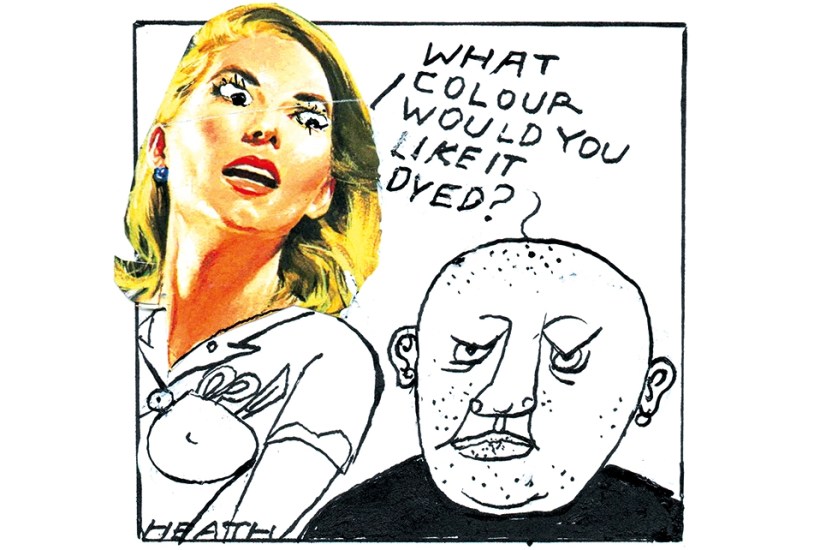Research in the USA has shown that it is possible to do something about grey hair. But ‘grey hair’ stands for ‘old age’, and there is nothing we can do about that, except make it easier to live with. Modern medicine certainly helps. There was no such luck in the ancient world, where the playwright Sophocles described old age as ‘unregarded, powerless, unsociable, unfriended, where misery couples with misery’.
Already a subscriber? Log in
Subscribe for just $2 a week
Try a month of The Spectator Australia absolutely free and without commitment. Not only that but – if you choose to continue – you’ll pay just $2 a week for your first year.
- Unlimited access to spectator.com.au and app
- The weekly edition on the Spectator Australia app
- Spectator podcasts and newsletters
- Full access to spectator.co.uk
Or
Unlock this article
You might disagree with half of it, but you’ll enjoy reading all of it. Try your first month for free, then just $2 a week for the remainder of your first year.








Comments
Don't miss out
Join the conversation with other Spectator Australia readers. Subscribe to leave a comment.
SUBSCRIBEAlready a subscriber? Log in